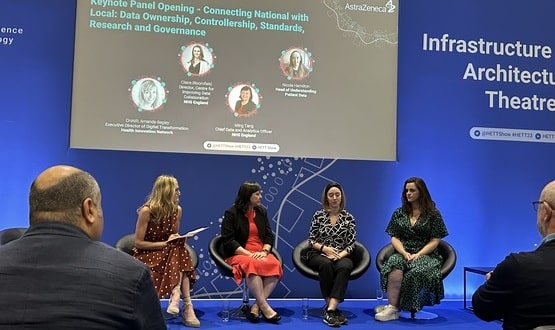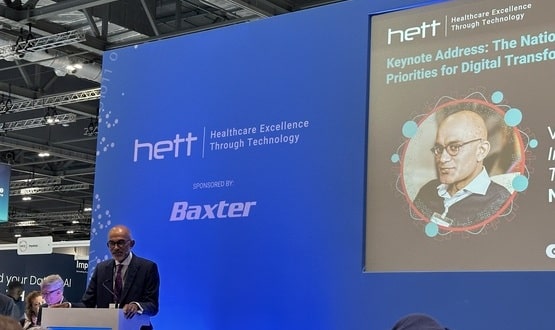LHCREs ‘essential’ for better patient care in ambulance service, CIO says
- 3 October 2019

Local health and care records are “essential” for ambulance services to improve patient care, the chief information officer for London Ambulance Service has said.
Paramedics often have no way of knowing patient history when called to an emergency and rely on information they can gather at the scene, Ross Fullerton explained.
Speaking at HETT on 2 October, Fullerton said working with Local Health and Care Record Exemplars (LHCREs) had the potential to transform the way paramedics treated patients, as well as the care pathways patients were put on once they arrived at the hospital.
“Local health and care records are, in my view, absolutely essential for ambulance services,” he told the audience at ExCel London.
“What they do is allow us to look across that footprint that we operate on. The opportunity for us here is to grow the patient information that we’ve got and the interaction of data beyond the summary care record.
“Local health and care records allow us to do two things. Number one is access the right information about patients.
“But also to share the information with our patients, either to pre-alert or as part of handover, or as part of notification of a GP or someone else as part of that process.”
London Ambulance Service is currently working with One London LHCRE to integrate care across ambulance services, he said.
But he stressed the process wasn’t as straight forward as simply allowing paramedics to view patient data.
“If I start looking at the full longitudinal care record and put that in front of ambulance clinician, arguably that’s too much data and that’s going to slow down the care and potentially lead to a detrimental decision being made,” he said.
“The challenge for us is to understand across a range of use cases, how do we get the right data into the hands of the right clinicians, in order to make the right decisions?”
In April, as part of its digital transformation, London Ambulance Service staff were given access patient data while on the move without the need for a ‘smart card’ or N3.
The NHS Identity Service pilot gives medics access to information about a patient in their care, without the patient having to answer difficult questions when they are in pain or unable to comprehend what is being asked.
Developed by NHS Digital, the pilot was run out of Camden Ambulance Station as its initial base, with around 60 medics having access to patients summary care records (SCRs) on secure iPads.
The pilot was trialled over 16 weeks, with the aim to roll it out across the capital for all frontline London Ambulance Service clinicians at a later date.




